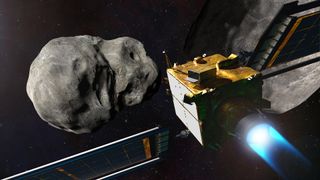
Brandon Specktor
Brandon is the space / physics editor at Live Science. With more than 20 years of editorial experience, his writing has appeared in The Washington Post, Reader's Digest, CBS.com, the Richard Dawkins Foundation website and other outlets. He holds a bachelor's degree in creative writing from the University of Arizona, with minors in journalism and media arts. His interests include black holes, asteroids and comets, and the search for extraterrestrial life.
Latest articles by Brandon Specktor
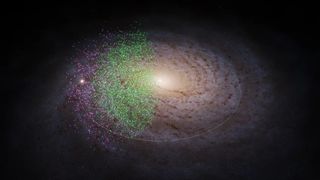
13 billion-year-old 'streams of stars' discovered near Milky Way's center may be earliest building blocks of our galaxy
By Brandon Specktor published
Two gargantuan structures discovered near our galaxy's ancient heart may be some of the earliest building blocks of the Milky Way. Researchers have named them Shiva and Shakti.

Spring equinox 2024: 'Equal night' brings the first full day of spring to the Northern Hemisphere
By Brandon Specktor last updated
The Spring equinox (March 19, 2024) signals the start of spring in the Northern Hemisphere, the beginning of autumn in the Southern Hemisphere, and a rare moment of "equal night" across the world.
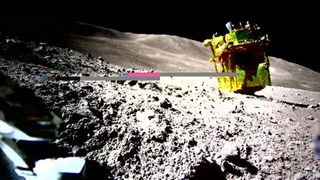
SLIM lives! Japan's moon lander revives after freezing lunar night, defying expectations
By Brandon Specktor published
After enduring two weeks in the freezing lunar night, Japan's SLIM moon lander awoke long enough to snap some new pictures and communicate with researchers on Earth.
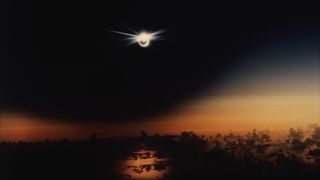
What is a solar eclipse?
By Jeanna Bryner last updated
Solar eclipses are some of nature's most dramatic celestial performances. Here's a look at the science behind the eclipse, and how to watch the next one on April 8, 2024.
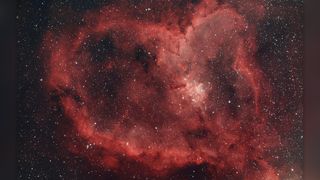
5 beguiling heart-shaped objects found in space
By Brandon Specktor published
From a 'potentially hazardous' asteroid to a pair of galaxies unable to quell their attraction, here are five of the most beautiful heart-shaped objects seen in space.
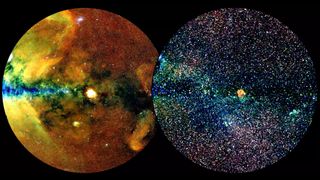
More than 900,000 stars, galaxies and black holes revealed in most detailed X-ray map of the universe ever
By Brandon Specktor published
Scientists using the eROSITA X-ray telescope have released a trove of data that reveals more than 900,000 objects in space, including 700,000 supermassive black holes and other 'exotic' objects.
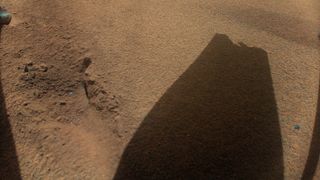
Ingenuity helicopter's final images reveal fatal rotor damage that brought it down on Mars
By Brandon Specktor published
The latest photos from NASA's immobile Ingenuity Mars helicopter reveal the extent of the rotor blade damage it sustained on its fateful 72nd flight.

NASA's historic Ingenuity helicopter ends its 3-year Mars mission, suffering rotor damage on 72nd flight
By Brandon Specktor published
NASA's Ingeunity helicopter has finally ended its three-year mission on Mars after sustaining irreparable rotor damage on its 72nd flight over the Red Planet. It was only designed to fly five times.
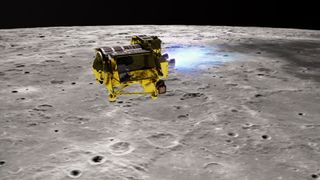
Japan's 'Moon Sniper' lands on lunar surface, but it may be dead within hours
By Brandon Specktor published
Japan's SLIM lander successfully reached the lunar surface on Friday, Jan. 19, but problems with its solar cells mean it could be dead on the moon within hours.
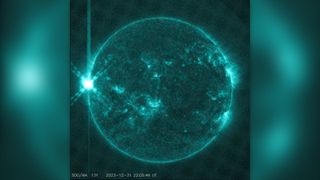
Monstrous X5 solar flare launched on New Year's Eve could bring auroras to Earth tonight
By Brandon Specktor published
In the final hours of Dec. 31, 2023, the sun launched its most powerful solar flare in 6 years. On Jan. 2, radiation from the blast may bring auroras to Earth's skies.
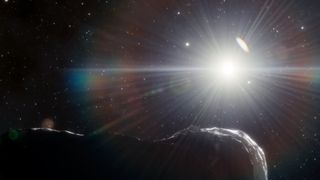
The 8 most Earth-shattering asteroid discoveries of 2023
By Brandon Specktor published
This year was one of the biggest ever for asteroid science, with NASA's triumphant return from asteroid Bennu, the grand reveal of organic molecules from asteroid Ryugu, a close look at the gory aftermath of an asteroid collision, and more.
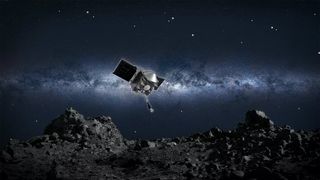
Editor's pick: The top space stories of 2023
By Brandon Specktor published
Aliens made headlines in 2023, but are we really any closer to finding life beyond Earth? A recap of the best new evidence, and other remarkable stories from the year in space.
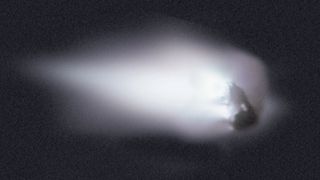
Halley's Comet has begun its return journey to Earth
By Brandon Specktor published
Halley's Comet was predicted to reach its farthest point from the sun on Dec. 9, beginning a 38-year journey toward Earth that culminates in 2061.
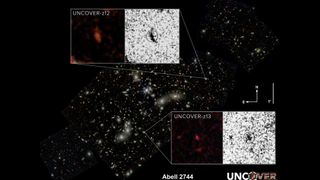
James Webb telescope discovers 2 of the oldest galaxies in the universe
By Brandon Specktor published
The James Webb Space Telescope has discovered a cosmic 'peanut' and 'fluff ball' that happen to be two of the four oldest galaxies in the known universe.
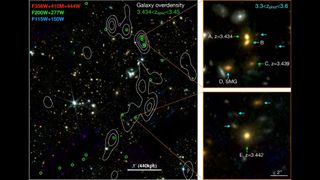
James Webb telescope discovers 'Cosmic Vine' of 20 connected galaxies sprawling through the early universe
By Brandon Specktor published
The James Webb Space Telescope has discovered a massive chain of 20 galaxies in the early universe, raising questions about the formation of the largest structures in the cosmos.

'Planet killer' asteroids are hiding in the sun's glare. Can we stop them in time?
By Brandon Specktor published
Feature In the glare of the sun, an unknown number of near-Earth asteroids move on unseen orbits. A new generation of space telescopes could be our best defense against potential disaster.
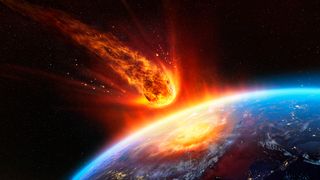
Could scientists stop a 'planet killer' asteroid from hitting Earth?
By Brandon Specktor published
If a mile-wide asteroid is discovered hurtling toward Earth, our survival might depend on launching 1,000 spacecraft — or one well-placed nuke.
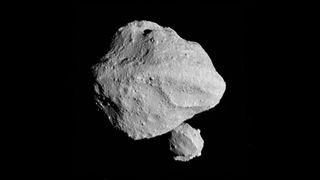
NASA flyby of "Dinky" asteroid reveals hidden moon
By Brandon Specktor published
NASA's Lucy spacecraft has found a hidden asteroid "moon" swirling around the larger main belt asteroid Dinkinesh, affectionately known as Dinky.
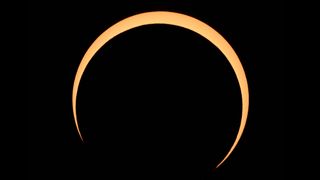
The best photos of the Oct. 14 'ring of fire' eclipse over North America
By Brandon Specktor published
Almost every part of North, Central and South America had a view of a partial solar eclipse on Oct. 14, with millions of lucky viewers witnessing a glorious 'ring of fire' around the moon.
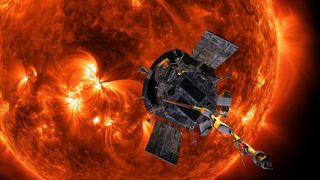
NASA's Parker Solar Probe smashes record for fastest man-made object
By Tia Ghose, Brandon Specktor published
NASA's Parker Solar Probe has reached a record-breaking speed as it gets a gravitational assist from Venus to fall closer to the sun's scorching surface.
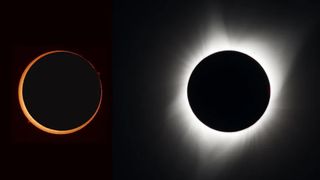
NASA will fire 3 rockets directly at the solar eclipse on Saturday. Here's why.
By Brandon Specktor published
NASA researchers plan to launch three rockets carrying scientific instruments toward the moon's shadow on Oct. 14, to study changes in the atmosphere brought about by the annular solar eclipse.

Astronomers want you to watch the Oct. 14 'ring of fire' eclipse with a disco ball. No, seriously.
By Brandon Specktor published
You can't stare at the sun, so how do you watch an eclipse? By reflecting it off of a disco ball, a team of astronomers suggests.

Are ghosts real?
By Benjamin Radford last updated
Opinion One difficulty in scientifically evaluating is ghost are real is the surprisingly wide variety of phenomena attributed to ghosts.
Get the world’s most fascinating discoveries delivered straight to your inbox.

